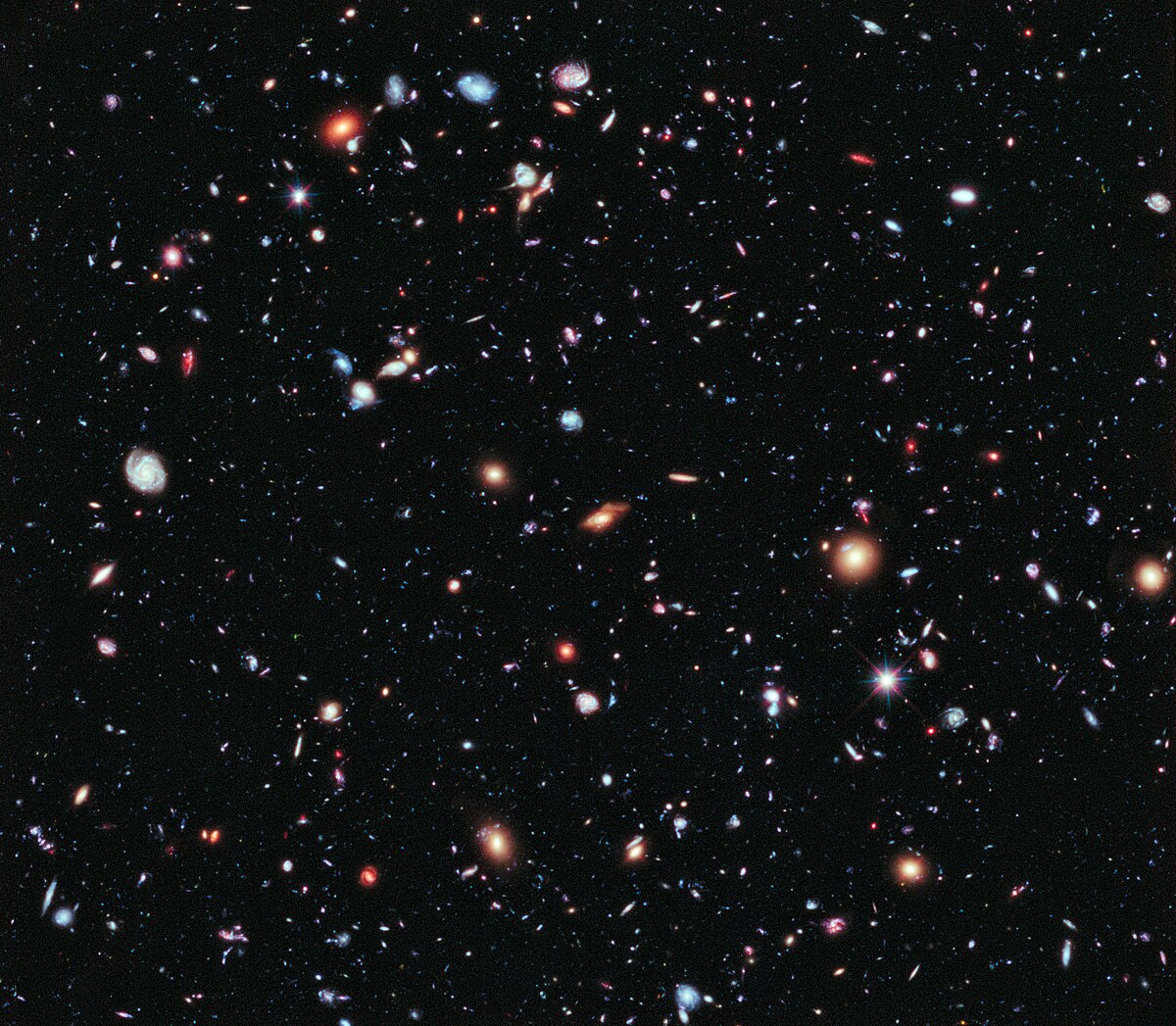What Is Cosmology Exactly?
- Thread starter IvanPrior
- Start date
You are using an out of date browser. It may not display this or other websites correctly.
You should upgrade or use an alternative browser.
You should upgrade or use an alternative browser.
Wolfshadw
Moderator
CosmologyWhat does a Cosmologist study?
Cosmology (from Greek κόσμος, kosmos "world" and -λογία, -logia "study of") is a branch of astronomy concerned with the studies of the origin and evolution of the universe, from the Big Bang to today and on into the future. It is the scientific study of the origin, evolution, and eventual fate of the universe. Physical cosmology is the scientific study of the universe's origin, its large-scale structures and dynamics, and its ultimate fate, as well as the laws of science that govern these areas

Cosmology - Wikipedia
 en.wikipedia.org
en.wikipedia.org
-Wolf sends
Thanks
Wolfshadw
Moderator
Think of it like Astronomers study individual types of celestial bodies (stars, planets, galaxies, etc...). Cosmologists study the larger structures such a galaxy clusters, their infrastructure, and how they evolved; things like that.
An analogy I might use would be studying a type of building as opposed to studying all the cities of a country and how they're conjoined.
-Wolf sends
An analogy I might use would be studying a type of building as opposed to studying all the cities of a country and how they're conjoined.
-Wolf sends
Nice one.Think of it like Astronomers study individual types of celestial bodies (stars, planets, galaxies, etc...). Cosmologists study the larger structures such a galaxy clusters, their infrastructure, and how they evolved; things like that.
An analogy I might use would be studying a type of building as opposed to studying all the cities of a country and how they're conjoined.
Cosmology is similar to Cosomotology - the beautiful make-up of the cosmos.
As E. E. 'Doc' Smith once put it, Cosmology is the study of the 'Cosmic All'. "Cosmos" is Greek for "Universe." So, cosmology is essentially universology (if there is such a word (if not I will here coin the word)). The broad brush study of the forest (including the ground), mostly, over the study of trees.
Similar threads
- Locked
- Replies
- 210
- Views
- 10K
- Replies
- 0
- Views
- 2K
- Replies
- 5
- Views
- 1K
- Replies
- 36
- Views
- 5K
- Locked
- Replies
- 320
- Views
- 13K
TRENDING THREADS
-
New interpretation of QM, with new two-phase cosmology, solves 15 foundational problems in one go.
- Started by Geoff Dann
- Replies: 320
-
Hubble Tension explained (including its value) by the two phase cosmology
- Started by Geoff Dann
- Replies: 210
-
Basic Error: The accelerating Universe conclusion - reason
- Started by Gibsense
- Replies: 263
-
-
The birth of the Quantum Convergence Threshold (QCT):
- Started by Capanda Research
- Replies: 84
-
-

Space.com is part of Future plc, an international media group and leading digital publisher. Visit our corporate site.
© Future Publishing Limited Quay House, The Ambury, Bath BA1 1UA. All rights reserved. England and Wales company registration number 2008885.

